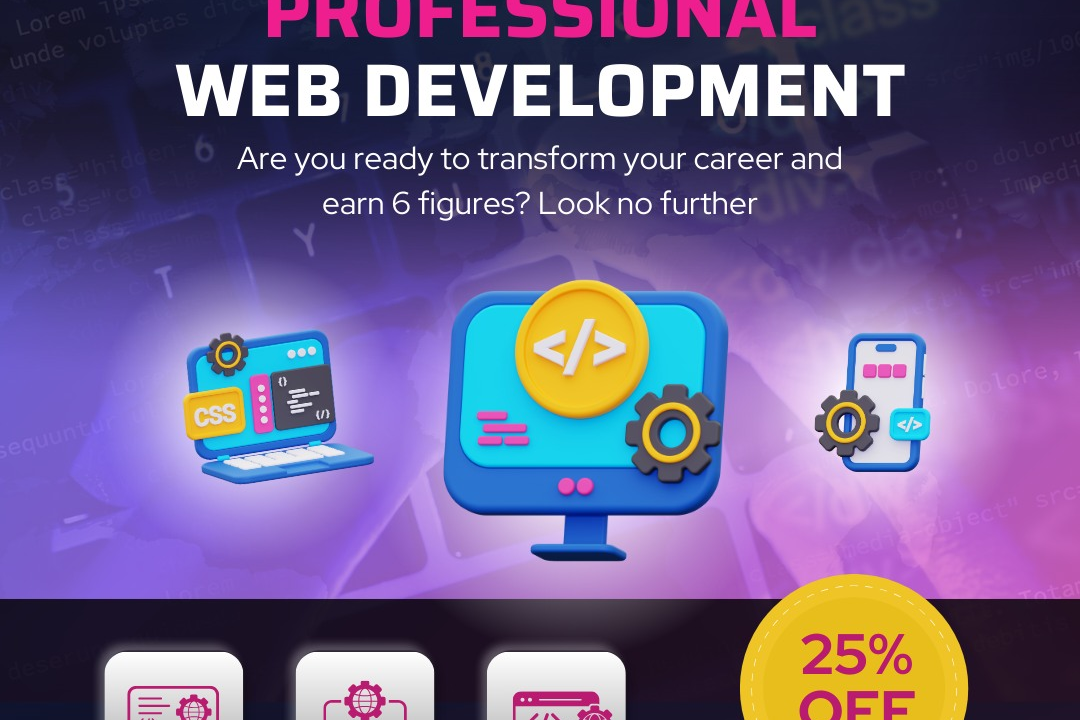seleniUM interview questions for experienced
Selenium interview questions for experienced professionals are designed to evaluate a candidate's in
seleniUM interview questions for experienced
Selenium interview questions for experienced professionals are vital as they assess a candidate's expertise in automated testing, particularly with the Selenium framework, which is widely used in the software industry for web application testing. These questions delve into advanced topics such as WebDriver functionalities, handling dynamic content, and integrating testing suites with tools like TestNG and CI/CD pipelines, ensuring candidates possess the practical knowledge necessary to develop and maintain robust test automation frameworks. By evaluating real-world project experiences, these interviews help identify individuals who can not only perform automation tasks but also contribute to team efficiency and effectiveness in delivering high-quality software products.
To Download Our Brochure: https://www.justacademy.co/download-brochure-for-free
Message us for more information: +91 9987184296
Selenium interview questions for experienced professionals are vital as they assess a candidate's expertise in automated testing, particularly with the Selenium framework, which is widely used in the software industry for web application testing. These questions delve into advanced topics such as WebDriver functionalities, handling dynamic content, and integrating testing suites with tools like TestNG and CI/CD pipelines, ensuring candidates possess the practical knowledge necessary to develop and maintain robust test automation frameworks. By evaluating real world project experiences, these interviews help identify individuals who can not only perform automation tasks but also contribute to team efficiency and effectiveness in delivering high quality software products.
Course Overview
The “Selenium Interview Questions for Experienced” course is designed for professionals looking to enhance their expertise in automated testing using Selenium. This comprehensive program covers a wide range of advanced interview topics, including WebDriver intricacies, handling dynamic web elements, and best practices for test case design. Participants will explore real-world scenarios and projects, equipping themselves with the knowledge to tackle common challenges faced in the testing domain. By delving into integration with tools like TestNG, JUnit, and CI/CD pipelines, the course prepares candidates to confidently navigate technical interviews and demonstrate their proficiency in automation testing, ultimately boosting their career opportunities in the competitive software industry.
Course Description
The “Selenium Interview Questions for Experienced” course at JustAcademy is specifically tailored for seasoned professionals seeking to refine their skills and excel in automated testing interviews. This course covers an extensive range of advanced topics, including in-depth discussions on WebDriver functionality, strategies for handling dynamic web elements, and test optimization techniques. Participants will engage with real-time projects that simulate industry challenges, allowing them to apply theoretical knowledge in practical scenarios. Additionally, the curriculum emphasizes integrating Selenium with frameworks like TestNG and JUnit, along with best practices for enhancing test reliability and efficiency. Completing this course will equip you with the confidence and expertise needed to impress potential employers and stand out in a competitive job market.
Key Features
1 - Comprehensive Tool Coverage: Provides hands-on training with a range of industry-standard testing tools, including Selenium, JIRA, LoadRunner, and TestRail.
2) Practical Exercises: Features real-world exercises and case studies to apply tools in various testing scenarios.
3) Interactive Learning: Includes interactive sessions with industry experts for personalized feedback and guidance.
4) Detailed Tutorials: Offers extensive tutorials and documentation on tool functionalities and best practices.
5) Advanced Techniques: Covers both fundamental and advanced techniques for using testing tools effectively.
6) Data Visualization: Integrates tools for visualizing test metrics and results, enhancing data interpretation and decision-making.
7) Tool Integration: Teaches how to integrate testing tools into the software development lifecycle for streamlined workflows.
8) Project-Based Learning: Focuses on project-based learning to build practical skills and create a portfolio of completed tasks.
9) Career Support: Provides resources and support for applying learned skills to real-world job scenarios, including resume building and interview preparation.
10) Up-to-Date Content: Ensures that course materials reflect the latest industry standards and tool updates.
Benefits of taking our course
Functional Tools
1 - Selenium WebDriver: Selenium WebDriver is the cornerstone of any automation framework. This tool allows students to write tests in various programming languages such as Java, C#, Python, and Ruby. It directly communicates with web browsers, enabling users to simulate user actions and interactions on web applications. By familiarizing themselves with WebDriver, participants gain valuable insights into designing robust test scripts and handling dynamic web elements effectively.
2) TestNG: TestNG is a powerful testing framework designed for Java that is widely used for running automated tests. It provides features such as annotations, data driven testing, and parallel execution, making it an essential tool for test management. In the training program, students learn how to leverage TestNG for organizing test cases, generating reports, and improving overall test execution efficiency. Understanding TestNG helps learners to enhance their testing strategies and optimize their testing processes.
3) Maven: Maven is a build automation and project management tool that simplifies the management of project dependencies and the build lifecycle. In the context of Selenium, Maven helps manage the necessary libraries and ensures that projects remain organized. The program instructs students on how to set up Maven in their testing environments, create POM files, and manage Selenium dependencies efficiently. This knowledge enables students to streamline their automation framework and focus on writing tests rather than dealing with configuration issues.
4) Cucumber: Cucumber is a behavior driven development (BDD) tool that facilitates collaboration between technical and non technical team members. It allows students to write tests in a human readable format using Gherkin syntax. By integrating Cucumber with Selenium, learners can create understandable test scenarios that reflect user requirements. The training program emphasizes the importance of BDD in bridging the gap between stakeholders, making it easier for teams to understand and validate testing efforts.
5) JUnit: JUnit is another popular testing framework that provides a structure for unit testing in Java. In this course, students explore how to use JUnit for automating their Selenium tests effectively. They learn how to create and run test cases, apply assertions, and utilize JUnit's features for better test organization. Proficiency in JUnit enhances participants' ability to write concise and maintainable test scripts, ensuring better quality and performance of automated test suites.
6) Selenium Grid: Selenium Grid is a crucial tool for parallel testing and cross browser testing. It allows students to run multiple test cases on different machines and browsers simultaneously, significantly reducing the overall execution time. Participants are trained on how to set up and configure Selenium Grid for their testing environments. This feature not only improves efficiency but also enhances the scalability of the testing process, making it a vital aspect of advanced Selenium testing techniques.
Through these tools, the training program equips students with the technical proficiency and practical skills necessary to excel in Selenium automation testing and confidently tackle interview challenges.
Absolutely! Here are additional key tools and concepts that enhance the learning experience for students in our Selenium automation testing training program:
7) Page Object Model (POM): The Page Object Model is a design pattern that encourages the creation of object oriented classes to represent web pages. By implementing POM, students can encapsulate the elements and behaviors of a web page within a single class, promoting code reusability and maintainability. The program teaches participants how to structure their test automation code using POM, leading to cleaner, more organized test scripts that are easier to manage and update.
8) Continuous Integration (CI) Tools: Familiarity with CI tools such as Jenkins or Travis CI is essential for modern software development practices. The course includes training on how to integrate automated tests into a CI pipeline, enabling seamless execution of tests with every code change. This knowledge allows students to understand the importance of automated testing in maintaining the quality and reliability of software, making them valuable contributors to development teams.
9) Test Automation Frameworks: Students will explore various test automation frameworks beyond basic Selenium setups. Frameworks like Hybrid, Data Driven, or Keyword Driven are covered. By understanding how to implement these frameworks, learners can scale their test automation efforts and apply best practices in test management, making their assertions more versatile and powerful.
10) Docker: Docker is a containerization platform that helps streamline development and testing environments. Incorporating Docker into the training program allows students to learn how to create isolated environments for their Selenium tests, ensuring consistency across different stages of development. This concept fosters better collaboration among teams and simplifies the deployment of test environments, which is especially useful in DevOps practices.
11 - API Testing: Alongside UI testing, understanding API testing is crucial. The training introduces students to RESTful API testing tools like Postman or RestAssured. By integrating API and UI tests, learners can ensure end to end functionality and validation of applications, providing a more holistic approach to application testing.
12) Version Control Systems: Knowledge of version control systems like Git is essential for collaborative coding environments. The program includes instruction on using Git for managing test scripts, facilitating teamwork, and allowing students to track changes effectively. Mastery of Git empowers students with the ability to collaborate on projects and maintain the integrity of their codebase.
13) Reporting Tools: Comprehensive reporting is a key part of the testing lifecycle. The training covers various reporting tools and libraries like Allure or ExtentReports, which offer rich reporting capabilities. By learning how to generate insightful reports, students can provide stakeholders with meaningful data about test results, aiding in decision making and project transparency.
14) Error Handling and Debugging: Handling errors and debugging is an integral part of developing robust automated tests. The course teaches students how to implement effective error handling strategies within their Selenium scripts, enabling them to identify and resolve issues quickly. Debugging skills are also emphasized, helping learners troubleshoot test failures efficiently.
15) Mobile Testing: As mobile applications continue to gain popularity, understanding mobile testing is becoming increasingly important. The program introduces students to tools like Appium, which extends Selenium principles to mobile app testing. This knowledge expands the students' skill sets, allowing them to pursue opportunities in mobile automation testing.
16) Soft Skills Development: Beyond technical skills, the training emphasizes the importance of communication, teamwork, and problem solving abilities. Students participate in group projects and discussions, enhancing their soft skills that are crucial in real world environments and collaborative settings.
By incorporating these additional points into the curriculum, ‘JustAcademy’ ensures that students are thoroughly prepared to enter the workforce as proficient professionals in Selenium automation testing, ready to tackle challenges in the evolving tech landscape.
Browse our course links : https://www.justacademy.co/all-courses
To Join our FREE DEMO Session:
This information is sourced from JustAcademy
Contact Info:
Roshan Chaturvedi
Message us on Whatsapp: +91 9987184296
Email id: info@justacademy.co












